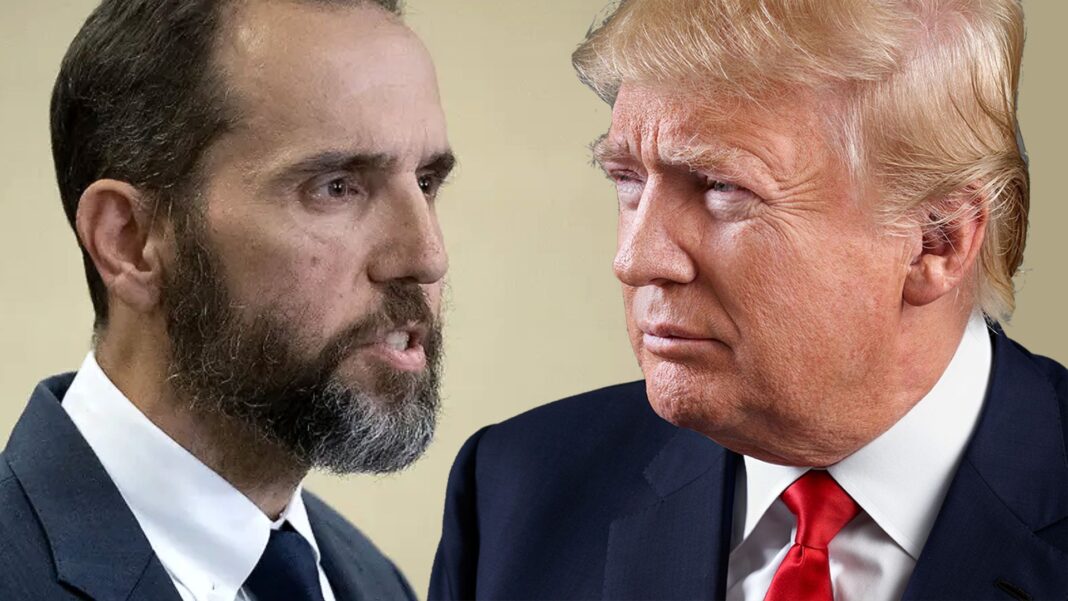She left the door open for the defense to bring the arguments back in a separate motion.
FORT PIERCE, Fla.—U.S. District Court Judge Aileen Cannon on March 14 heard arguments on two of former President Donald Trump’s several motions to dismiss a case alleging he mishandled classified documents, rejecting one motion by order roughly two hours after court adjourned.
“Defendant’s motion is denied without prejudice,” the judge wrote regarding the motion to dismiss based on unconstitutional vagueness.
Defense attorneys had argued for dismissal of 32 counts regarding mishandling classified documents under the Presidential Records Act (PRA) and for “unconstitutional vagueness.” However, during the hearing, Judge Cannon seemed unconvinced that those arguments weren’t better suited to the trial stage of the case. These were only two of several motions to dismiss filed by the defense.
Her order allows the arguments to be raised later “as appropriate in connection with jury-instruction briefing and/or other appropriate motions.”
The judge said the arguments posed warranted “serious consideration” and that the issue “depends too greatly on contested instructional questions about still-fluctuating definitions of statutory terms/phrases as charged, along with at least some disputed factual issues as raised in the Motion.”
Judge Cannon had said it seemed “premature” to bring in facts from outside the indictment pretrial—such as whether the records in President Trump’s possession were “personal records.”
Much of the argument of the day turned into debate over whether President Trump had the right to designate the documents personal, whether he did do so, and whether that designation under the PRA would supersede charges based on the Espionage Act.
Last summer, President Trump was charged with 37 counts, along with his valet Walt Nauta. Later, three charges were added related to obstruction, and Mar-a-Lago property manager Carlos De Oliveira was added as a co-defendant. The case came after the FBI’s high-profile raid of Mar-a-Lago in 2022, on the basis that President Trump retained classified documents he had been subpoenaed to return.
Arguments on the two motions frequently bled into a separate motion to dismiss based on selective and vindictive prosecution, which wasn’t on the agenda for March 14.
By Catherine Yang, Jacob Burg and T.J. Muscaro









